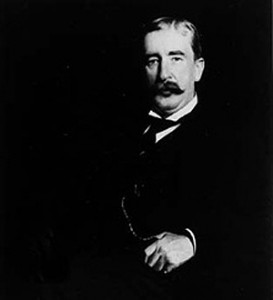 The university’s first professor of history, HERBERT BAXTER ADAMS came to Hopkins during its first year of operation in 1876 as a teaching fellow and went on to chair the History and Political Science Department. A foremost scholar of American history, he was a leader in the creation of the American Historical Association. Dr. Adams, who was known to quietly lend money to students in need, believed that the main principle of historical training was “to encourage independent thought and research.” Among his students were Frederick Jackson Turner, A&S 1890 (PhD), who went on to become a prominent historian–the first to assert the importance of the frontier in forming the American character–and Woodrow Wilson, A&S 1886 (PhD), who became the 28th president of the United States. Dr. Adams died in 1901.
The university’s first professor of history, HERBERT BAXTER ADAMS came to Hopkins during its first year of operation in 1876 as a teaching fellow and went on to chair the History and Political Science Department. A foremost scholar of American history, he was a leader in the creation of the American Historical Association. Dr. Adams, who was known to quietly lend money to students in need, believed that the main principle of historical training was “to encourage independent thought and research.” Among his students were Frederick Jackson Turner, A&S 1890 (PhD), who went on to become a prominent historian–the first to assert the importance of the frontier in forming the American character–and Woodrow Wilson, A&S 1886 (PhD), who became the 28th president of the United States. Dr. Adams died in 1901.